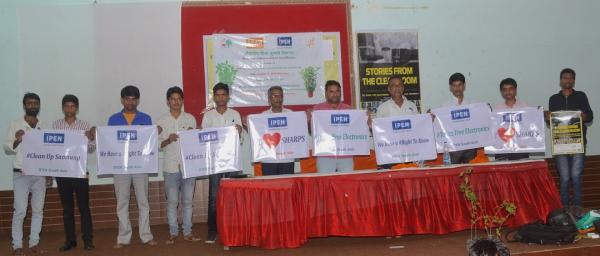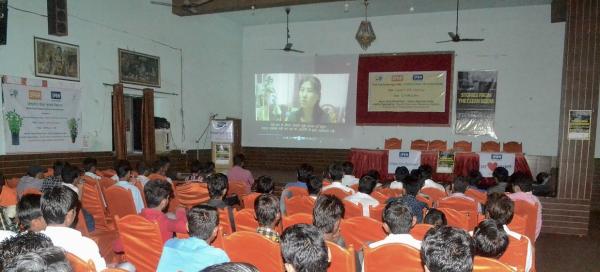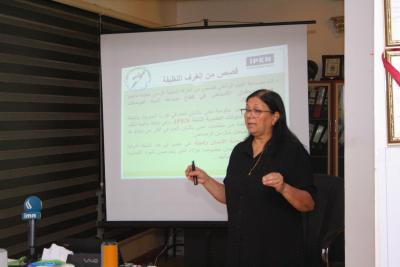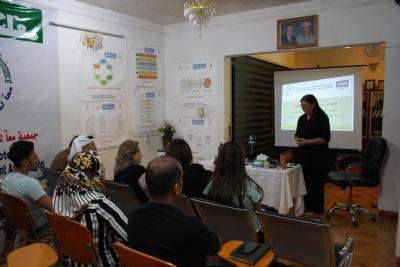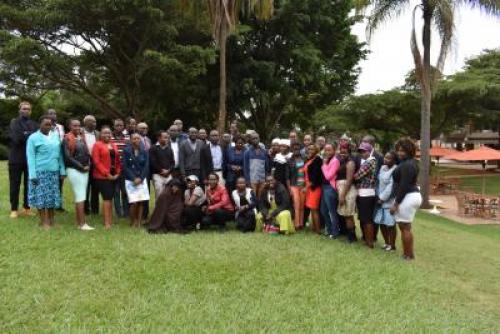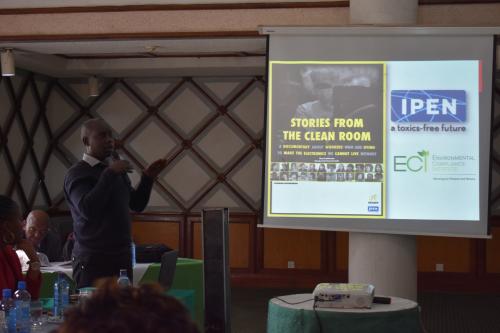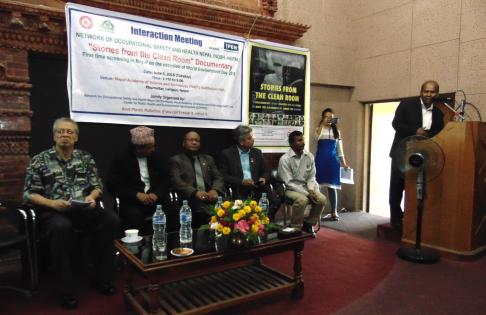Global Screening Details
Albania
EDEN Center hosted 2 screenings of Stories from the Clean Room on December 11th and 22nd, 2018, at the Youth Center in Tirana and Municipality Building of Mallakaster in Ballesh, respectively. A total of 97 people attended the screening, including young students, college students, professors, municipal officials, social and environmental NGOs, and a medical professional. The screening was combined with the photography exhibit, which moved the audience deeply. For the pupils, it was the first time they heard of this problem, and they felt appalled by the issue, eager to stop supporting electronics companies like Samsung. EDEN Center plans to conduct more showings of the film.
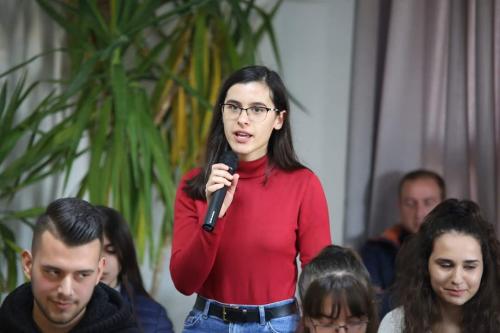
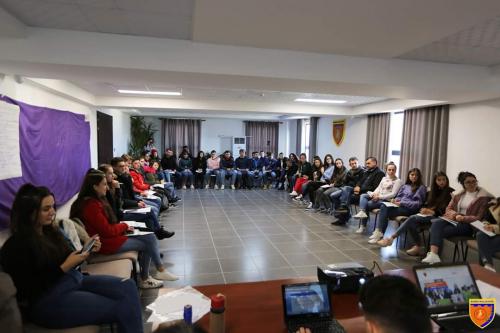
Armenia
Armenian Women for Health and Healthy Environment (AWHHE), an Armenian NGO, hosted two screenings of Stories from the Clean Room in Yerevan, Armenia, in July and August 2018 followed by a discussion of toxics in electronics. 20 and 18 people attended, respectively, and among the audiences were civil society representatives working at the national and local level (environmental and consumer rights organizations, academia, and journalists). Also in attendance were the head of Eco Coalition (Coalition representing 45 Environmental NGOs including AWHHE), four representatives from the Center of Monitoring and Information of the Ministry of Nature Protection, Yerevan Aarhus Center (works with 13 Aarhus Centers in Armenia’s 8 regions), representatives of Dilijan Municipality, activists from the Aarhus Center of Dilijan, an active journalist covering the ecological issues in the region, a public college, Youth Café (a discussion club) and local school and kindergarten principals. During a discussion that followed the screening, it was agreed by participants that action is needed to this issue to the attention of health and other professionals, especially those responsible for workers' health, as well as social protection of workers. At the screening in August, there was a special focus in the discussion on birth defects as a burning issue for Tavush activists, who agreed to monitor electronic production companies in Tavush.
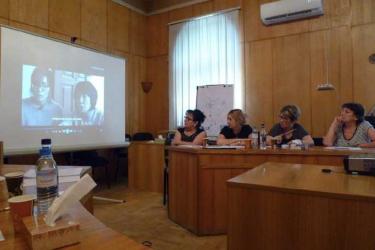
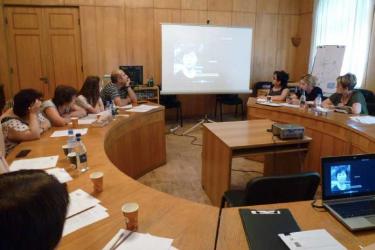
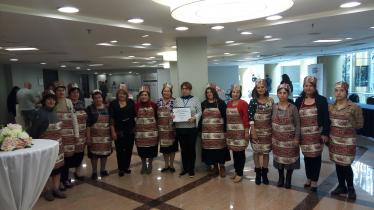
Bulgaria
Za Zemiata organized a screening of the film at a Bulgarian film festival on October 8, 2018. After the screening, they collaborated with an organization called Bankwatch to have a discussion about e-waste in some factorries in China, and also addressed how people in Guiyu, China burn e-waste in dangerous conditions.
Cameroon
On November 20, at CREPD headquarters, Stories from the Clean Room was screened. This screening, which was attended by representatives of key government officials, civil society representatives and the media, shed light on the toxic illnesses caused by global electronics industries.
This documentary film caused deep emotion and indignation among the participants of the screening, and has led to productive exchanges and debates to protect the environment, workers in similar industries, and millions of users and technicians of these devices in Cameroon.
At the end of the documentary, all participants were unanimous in condemning this inhuman treatment in the workplace, and agreed that the employees of the Samsung multinational in South Korea are victims, particularly of exposure to chemicals incorporated in electronic devices. Attention has thus been drawn to other electronics companies internationally, as Samsung's case is indicative of the harsh realities faced by daily workers. To this end, the Ministry of Labor and Social Security, the Ministry of Health were challenged on their role for good regulation of this sector in Cameroon.
The projection of this film also highlighted the issue of waste management of electrical and electronic equipment. In Cameroon, the Ministry of the Environment, and representatives from the Post and Telecommunication companies indicated the need for waste collection by organizations trained to properly dispose of these electronics. Unfortunately, the small number of these kinds of organizations in Cameroon constitutes an obstacle to the rational management of this rapidly evolving threat.
For Ms. Tiwa Carine of the Ministry of Water and Energy, "this alert from Korea is still unfortunately poorly known in Cameroon. We must take ownership of this reality, both at the level of safety at work in the country and in national factories that deal with chemical and hospital waste management." Mr. NDOMO Jules Christian, SAICM focal point at the Ministry of Environment and Sustainable Development, added, "This moving story invites us all to take an active role in protecting our living environment from aggressive waste that is harmful to the environment and harmful to human health."
China
On August 3rd and 31st in Hong Kong, Greeners Action hosted two successful screenings of the film for an audience of about 20 people, including representatives of local labor unions. The audience expressed their support and gratitude for SHARPS. A notable outcome of the screening was the enhancement of the audience's understanding of the electronics industry's threat to workers' health, and their own reflection on the use of electronic products in their lives.
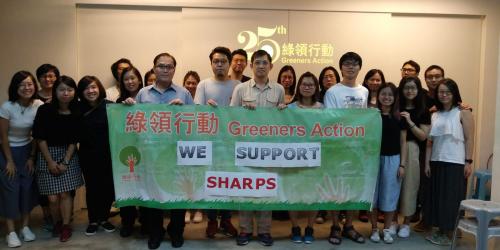
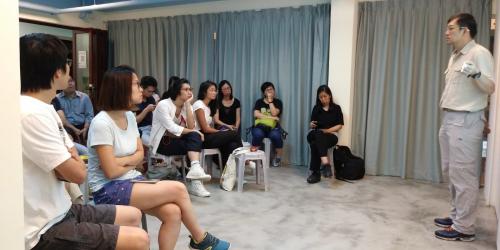
Czech Republic
A screening was hosted in the Czech Republic by Arnika with 35-40 people in attendance, including several journalists and documentary directors. There was an introduction speech before the movie and a 20 minute discussion after the screening.
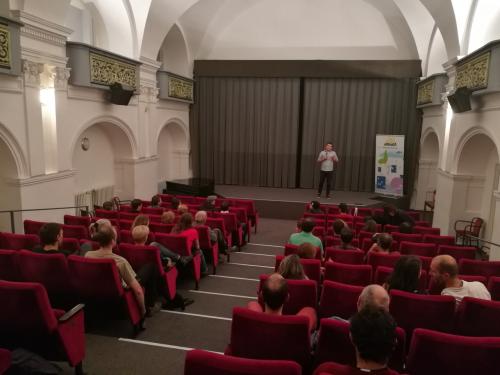
DR Congo
During the screening of the flim in the Congo, agents and executives of the Congolese Environment Agency (ACE) and the Ministry of Environment and Sustainable Development came together to participate. They expressed a feeling of sadness regarding the testimonies made by the former agents, men and women, of different semiconductor industries.
Egypt
On Saturday, July 21, 2018, Kenana Association for Sustainable Development in collaboration with Sherouk Association in Menia/Egypt, screened Stories from the Clean Roomto increase awareness on the hazardous conditions in the semi-conductor industry.
The film premier was attended by several local activists in the governorate and received massive attention from civil society.
Following the display, the senior officer at Sherouk highlighted that this documentary is a collaboration between IPEN & SHARPS and puts a human face to this public health crisis.
The showing was followed by a debate among attendants and specific discussion points in relation to the importance of setting a roadmap to reduce such incidents in this important industry and ensure the health and safety of the workers.
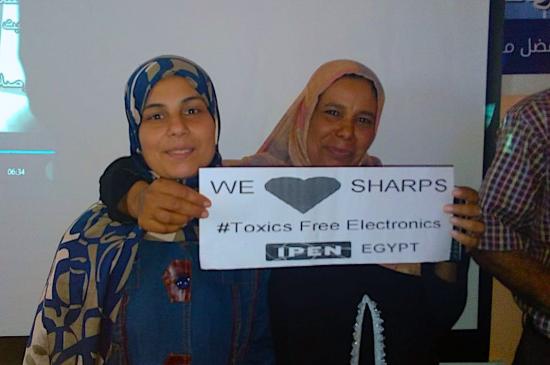
Ethiopia
PAN-Ethiopia, in collaboration with Kotebe Metropolitan University, organized a consultative workshop on "Toxics-Free-Electronics for a Safe and Healthy Environment" at the university, where Stories from the Clean Room was screened. A total of 50 participants attended and the activities included:
- A presentation by PAN-Ethiopia of the e-waste management status in Ethiopia, the ratification of the e-waste management regulation and how we can be proactive in the life cycle management of electronics;
- A masters thesis on e-waste management in Ethiopia was presented by a university staff member;
- "Stories from the clean room" was screened for participants;
- And a detailed discussion was conducted, where an agreement was reached between PAN-Ethiopia and the university to work together on this issue.
Georgia
In Georgia, demonstration of the film was carried out by Georgian Environmental and Biological monitoring Association (GEBMA). Georgian experts on chemical safety, Dr. Inga Gvineria and Dr. Manana Juruli facilitated film screening. First, the video was viewed. The demonstration followed by a short presentation of Dr.Manana Juruli (Co-Chair of GEBMA). A brief Q&As session conucted each session. GEBMA experts summarized the outcomes of the viewing sessions in a brief report.
- On 11.20. 2018 the N.Makhviladze Institute of Labour Medicine and Ecology hosted a screening of Stories from the Clean Room in Tbilisi. Representatives from the Ministry of Labour Health and Social Affairs of Georgia (Marina Baidauri), the Ministry of Environment (Ana Berejiani), Ministry of Economy (), National Center for Deases Control, sceintists, NGOs (“Caucasus Environment”,” Georgian Association of Toxicologists”, “Academy of Higiene Sceince”). Director of Institute, Dr. Rusudan Javakhadze: The awareness of occupational health risk management in the electronics industry is weak in Georgia, and many Georgian occupational health management regulations have not been effectively implemented. Insight into the health risk awareness levels of chemical industry, including electronic industry workers is important as it may offer opportunities for better occupational health and safety management strategies to reduce the health effects of workers in many countries.
- On 11.21. 2018 the first screening and on 3.25.2019 the second screening was condacted in the D.Tvildiani Medical University; The screening was well attended by 27-30 people (Administrative staff, lecturers, students). Some points raised after the screenings: The film is informative and very useful. It is necessary, all officials to know. Students shall understand the danger at work. It is advisable to include the screening of the film in a lecture course on chemical safety.
- On 02.20. 2019 in The Eurepean University in Georgia. A total of 23 people participated including educators, university students, electronic mechanics.
It was concluded: The strategies must be undertaken by chemical/electronics manufacturers and overseen by relevant government agencies. Workers have a need and right to know about the identities and hazards of chemicals they are exposed to when working. The environmental and occupational safety protections depends on open access to information and opportunities for meaningful participation of community residents and workers in decision making.
India
The first screening of "Stories form the Clean Room" in India was shown in the Dausa district- India on August 11, 2018. A total of 73 people participated including educators, college students, NGO representatives, traders, electronic mechanics, mobile phone charger manufacturers, social workers, and media.
A second screening was held by GVEPS on December 18, 2018, in which a total of 89 people participated, including teachers, students, NGOs representatives, traders, social workers, and media.


Prithvi Innovations screened the film three times at Lucknow University, on November 28th, 2018, and twice on December 19th, 2018, in collaboration with Amity Business School (ABS), Amity University, and the Lucknow University campus. 200 people attended each screening in December, including an external advisor of the World Health Organization (Geneva) on Occupational Safety of Nanomaterials, academics, and media personnel. Audiences were taken aback, seeing this harsh reality. It was an eye-opening experience for them, and many of them were moved, realizing the impact of the problem. Many of them even pledged that they would be more careful regarding usage and disposal of e-waste and will try to spread awareness about it.
Since the movie has raised lot of questions and inspired support for SHARPS, a panel discussion and open house was organized to address concerns, and to share some valuable information about the success of the campaign. Prof. Rahman and Dr. P.K. Seth shed further light on the health hazards and various dimensions of occupational safety, and the need for strict compliance, regulation and information. After the panel, students from various departments took part in the poster contest, wherein they made meaningful posters and small videos to expresstheir views.
It was decided that there would be a second screening in 2019, as many students were unable to attend the first screening due to unavoidable reasons.
The December screenings were covered by the morning news-Halchal program of All India Radio.
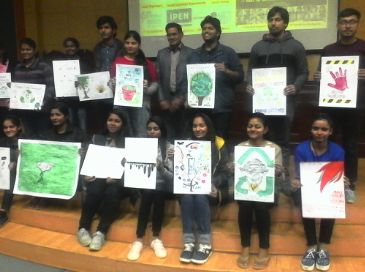
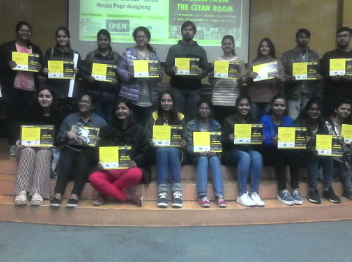
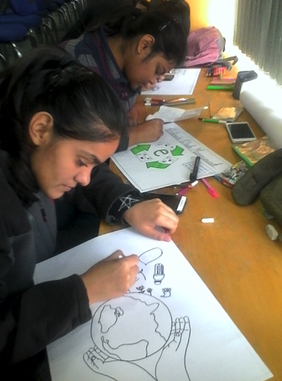
Indonesia
On the 28th of June, “Stories from the Clean Room” was screened in Bogor, Indonesia, co-hosted by the Gibbon Foundation, as part of a monthly discussion series on any topics concerning NGO partners or affiliates. The screening consisted of NGO activists, lecturers and students of IPB (Bogor Agriculture Institute). Discussion after the screening triggered some questions and strong statements, such as:
- Is it possible to certify the gadgets with "Halal Certification?" One participant said that the Halal certification should be extended by "Toyib" so it will be "Halal & Toyib Certification.” Toyib is an islamic term to describe responsible supply chain.
- Consumers must be better educated in order to make responsible decisions when buying electronics.
- Governments should enforce the regulations, especially the rights of workers to form unions.
Participants requested to be stay informed and proposed to establish a mailing list about electronics.
On the 29th of June, a screening of “Stories from the Clean Room” was co-hosted by Greenpeace Indonesia, and took place at their office in Jakarta. This screening was well attended by 40 people representing various NGO groups, including the Indonesian Association of Labour Union (Gabungan Serikat Buruh Indonesia or GSBI) and a couple of representatives of Longvin workers (supplier of Samsung's headsets, earphone, etc.), Konfederasi Serikat Pekerja Indonesia (KSPI), Yayasan Kanker Indonesia (Indonesian Cancer Foundation), JATAM, WALHI, ICEL, etc. Some points raised after the screening:
- Representative from PT Longvin Indonesia: Although PT Longvin only produces headsets for Samsung, after watching the film, they confirmed that they also heard some health complaints like those in the film although not as severe as the South Korean cases. Most of the workers are female workers.
- Representative from GSBI said that a couple of months ago, GSBI invited several Samsung workers in the Bekasi factory to join GSBI. As a consequence for joining the meeting, a couple of days later, three workers from Samsung were fired immediately. Before they were fired, they also received death threats from people believed to be hired by the company.
- The head of GSBI said that in 2012, they coordinated a big protest targeting Samsung, but the protest was not completed and GSBI received threats as a result.
- A medical doctor from Yayasan Kanker, Indonesia said that it will be good if we can collaborate and conduct early detection of cancer to prevent patients or workers from severe cancer diseases. Reporting and recording system related to occupational health and safety should be accessible by the workers.
- A medical doctor from Fit2Work OHS (consultant) noted that a continuous survey in several key hospitals such as Dharmais Cancer Hospital, Heart Disease Hospital, Lung Disease Hospital Persahabatan, etc., should be established to allow NGOs or the Ministry of Health to get background information about a patient, in order to have a better understanding about the potential cause of the disease.
- Greenpeace and WALHI noted that we need to keep the pressure on the industry to disclose the chemicals content in their products and inform their workers.
- A representative from the EWasteRJ community said that electronics are not only problematic during the manufacturing process, but until the end of their lifecycle. We still do not have proper e-waste processing facilities in Indonesia.
On the 4th of July, a 3rd screening was conducted in Indonesia (Surabaya), co-hosted by GEMA Indonesia (Gerakan Masyarakat Indonesia), a network of inter-faith, anti-racial solidarity groups. The screening was well attended by 50 people from various organisations and members of GEMA Indonesia. Some points raised after the screening:
- Labour unions need to be reached out to further. They need to be empowered, especially to ask for their rights and better protection of their occupational health & safety.
- We need to raise the awareness of consumers about electronics and their associated impacts, from the beginning of the line (production) until the end of the stream (wastes). All electronics products should declare what hazardous substances or harmful chemicals are contained in their products.
- Workers should receive better protection and should be informed about the risk of their jobs.
Iraq
In September 2018, two screenings were hosted by Together to Protect Human and the Environment Association (Together Iraq) in Iraq. In attendance were NGO representatives and activists, gonvernment officials, electronics company representatives, and the media. There were 19 people at each screening. The screening began with introduction to the issue of hazardous chemicals used in the electronics industry, proceeded with the screening of the film, and ended with an open discussion about the film.
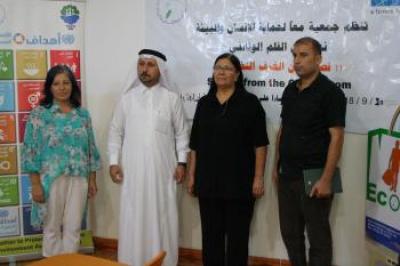
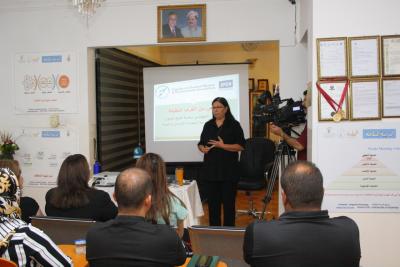
Khazakstan
A screening of Stories from the Clean Room was held by ECOM on November 13, 2018 in Pavlodar, Kazakhstan, co-organized by Innovative University of Eurasia. Twenty people were in attendance, mostly comprised of students and political activists. A discussion was held after the screening. ECOM plans to meet with representatives of trade unions and government agencies to draw their attention to low control over the safety of workplaces in Kazakhstan.
Kenya
The screening in Kenya was hosted by Environmental Compliance Institute (ECI) on July 18th. 40 guests attended with representation from government, industry, informal business sector, and civil society, including community based organizations and trade associations. Kenya's SAICM Coordinator, Mr. Francis Kihumba, was also a notable attendee. The film generated a lot of awareness and interest among the participants and was organized jointly with the Ministry of Environment and CEJAD.
Kyrgyzstan
On October 18, 2018 at Park Hotel in Kyrgyzstan, the film was screened during an international conference on Life in Kyrgyzstan by the American University of Central Asia and the University of Central Asia. In attendance were participants of the conference, of which a large majority were high school teachers. The total audience for the screening was 1130 people. A notable outcome of the screening is that teachers of universities in attendance will include information about health harm caused by the assembly process of electronic device enterprises. Sputnik TV in Kyrgyzstan covered the event.
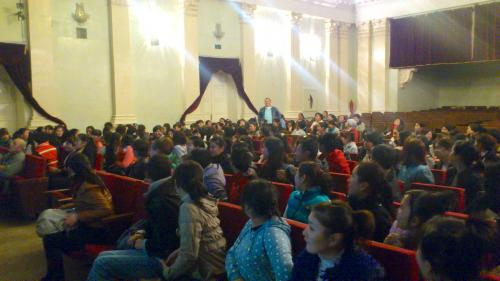
Mexico
Six screenings were organized by CEREAL from September-December 2018 in Guadalajara, Mexicali and Tijuana. A total of 95 participants viewed the film, composed mostly of university students and workers. As follow-through from the screenings, CEREAL wants to follow up the workers and provide training to them so that they know that the substances they are working with are harmful to their health, and that in the long term, they can generate serious consequences. They also want to undertake chemical analysis of the level of contamination of the workers to see how they are currently exposed to chemicals.
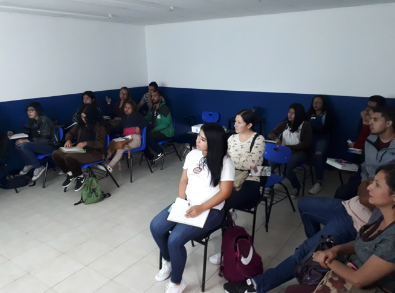
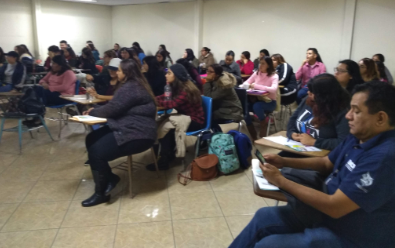
Nepal
“Stories from the Clean Room" was screened at the Nepal Academy of Science and Technology in Khumaltar, Lalitpur at an interaction program jointly organized by Network of Occupational Safety and Health Nepal (NOSH-Nepal), Nepal Academy of Science and Technology (NAST), and Center for Public Health and Environmental Development (CEPHED) on the occasion of World Environment Day 2018. The program was opened by Mr. Durga Pd Dawadi, Director General of the Department of Environment.
About 75 personnel from different governmental ministries, non-governmental organizations, scientific institutions, media, industry, schools, health offices, and United Nations agencies were present for the program.
Three papers related to occupational safety and health were presented. Mohan Katuwal, President of the Federation of Grill and Steel Fabricators and Vice President (Objectives) of the Federation of the Nepal Chamber of Commerce and Industries stressed the need to fully acknowledge the issues of occupational safety and health at working places and make business more health and environmentally friendly.
Prof. Dr. Sunil Kumar Joshi stressed the need to recognize employees who suffer from occupational diseases and to provide all the protective and rehabilitation measures. He also highlighted the ICOH (International Commission on Occupational Health) role in recognizing the semiconductor industry victims in Korea and that a similar initiative needs to be made in Nepal.
Nigeria
On July 13th in Lagos, PAVE Nigeria screened the film in front of media, research and academic institutions, workers, students, women and youth groups, CSOs, and trade unions. The screening created necessary awareness of hazardous chemicals in electronics production as a global chemical safety issue. Print and electronic journalists, as well as bloggers and social media activits helped created visibility for the event and for the issue.
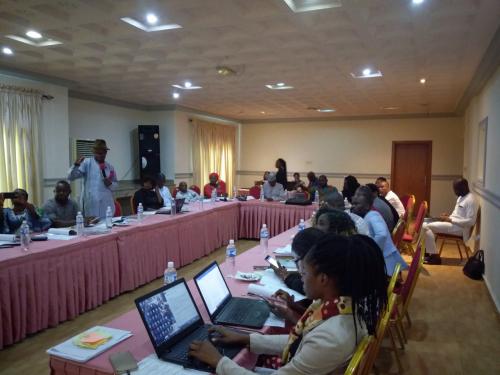
Philippines
In the Philippines, Ecowaste Coalition organized a screening at Cine Adarna, University of the Philippines (UP) Film Institute. Close to 300 people attended from student and youth groups, labor federations, informal waste workers’ associations, and environmental and health organizations, and were very moved by the film. Read this article to find out why.
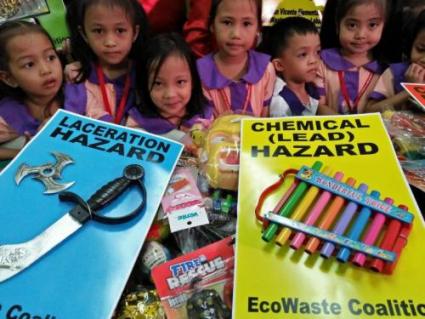
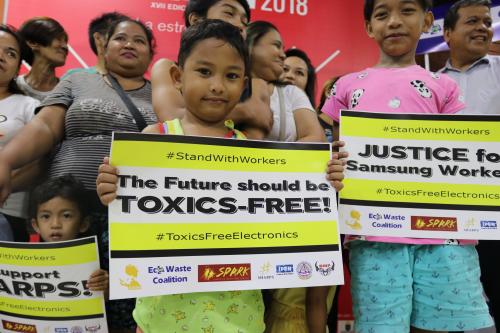
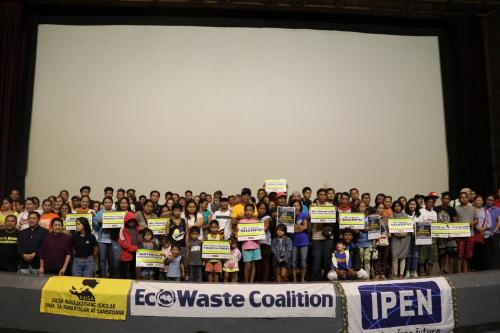
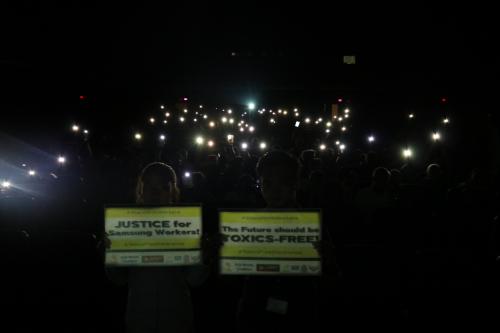
Switzerland
The film's trailer was shown in Geneva on November 28th during a panel on 'Addressing human rights impacts of toxic waste: challenges and human rights due diligence across sectors' as part of the UN Forum on Business and Human Rights. The panel discussion was organized by GoodElectronics, ICRT, BHRE, Earthrights and UN Special Rapporteur on human rights and toxics, Baskut Tuncak. The panel was attended by 60 people.
Taiwan
Wild at Heart Legal Defense Association Taiwan organized a screening of the film at Taipei Movie Center. After the screening, a discussion took place, including a segment with a victim of Radio Company America, a former electronics company know to have manufacturing sites polluted with industrial waste, and a key member of Taiwan Association of Victims of Occupational Injuries (TAVOI).
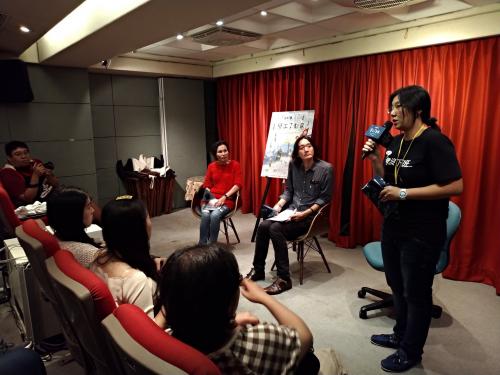
Tunisia
AEEFG in Tunisia organized two screenings of the film at a science institution in Tunis and Culture Medina. Attendees of the combined screenings included the National Agency for Management of Waste (ANGED), Tunis medical and sanitary control, private sector institutions for the responsible disposal of electronic waste, chemical engineers, NGOs, students/youth, and media. The events triggered newspaper and radio coverage. Along with the screenig, presentations were made by AEEFG, ANGED, the private sector and the medical and sanitary control, followed by 7 hours of non-stop, deep discussion about the issue. Workers from ANGED were surprised and worried after watching the film, as they had been previously invited by Samsung to visit their factory! They did not realize the gravity of the problem. Medical and sanitary control workers were unaware that the issue even existed, and learned about its implicatons for the first time. Participants expressed interest in holding another workshop about the issue for further awareness-raising.
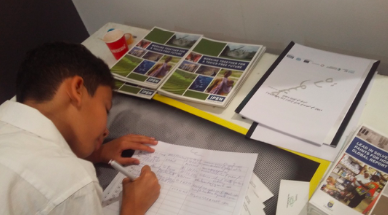
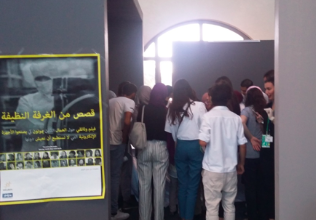
Togo
Social Action for Integral Development (ASDI) is a Togolese non-governmental organization working on the management of electrical
and electronic equipment waste, training and sustainable agriculture. On June 29th, they held a showing of Stories from the Clean Room in Togo.
To read a press release from the screening, click here. To see media coverage of the event (in French), click here.
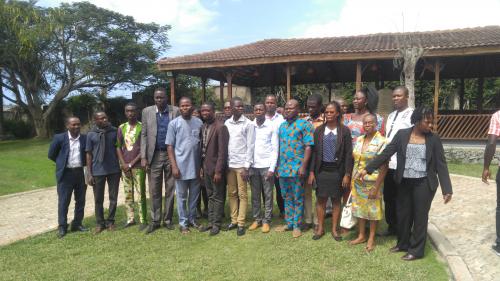
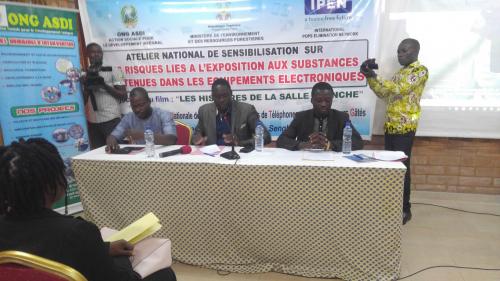
United Kingdom
On January 31, 2019, SOAS University hosted a screening of Stories from the Clean Room in London. Attendees of the screening gave some testimonies about the experience.
Yong-Jun Park, PhD student at the University of Cambridge. "My research aims to explore the democracy's resilience in the face of a darkening political landscape particularly in South Korean context.":
Stories from the Clean Room is a staggering investigative documentary in what can only be called a guilty verdict on a world of what Susan Sontag called the “simultaneity of wildly contrasting human fates.” It is about the lives of workers, mostly women in their 20s and above, who have been seriously injured or killed while working in toxic electronics industry. Our daily lives are surrounded by all different kinds of electronic devices from laptops, TV, and smartphones which are brought into the world by the hands of those workers. But the heart-breaking stories in this polemical film raises crucial moral questions: How are we to live in a world of injustice and pain? What are the responsibilities of those who are well to those who suffer? Life asks us to respond to everyday emergencies along with the larger tragedies of our time, and we are fortunate when there are among us people who risk their lives to make our life more safe, convenient, and easy. A French philosopher and political activist Simone Weil, who died at the age of 34, once notes: “There is a class of people in this world who have fallen into the lowest degree of humiliation, far below beggary, and who are deprived not only of all social consideration but also, in everybody’s opinion, of the specific human dignity, reason itself—and these are the only people who, in fact, are able to tell the truth. All the others lie.” To suffer for others is part of what it means to be human. Amidst the dark night of indifference, it is still possible for our species to be human if we are to suffer for others. This movie pulls me back from the abyss of despair. To be hopeful in bad times is not just foolishly romantic. It is based on the fact that human history is a history not only of cruelty, but also of compassion, sacrifice, courage, kindness. The impossible will take a little while, but we will go forth to try anyway.
Yerin Lee, PhD candidate, Political Performance in Screen Dance, University of Roehampton:
The screening was absolutely great with the film and deep discussions. Through highlighting the issue, the film alerted that the situation still could not reach lots of people. Even though it is a serious issue, why people do not know it properly and recognise the seriousness of it? In fact, after the screening, only a single question which is very significant kept remaining to me; What is next? It is an important stage to go forward to protect the victims and also potential victims. Additionally, with this issue, we need to think about how we take a role in protecting our living environment and our health from this destructive environment.

Debug project variant
Debug project variant

